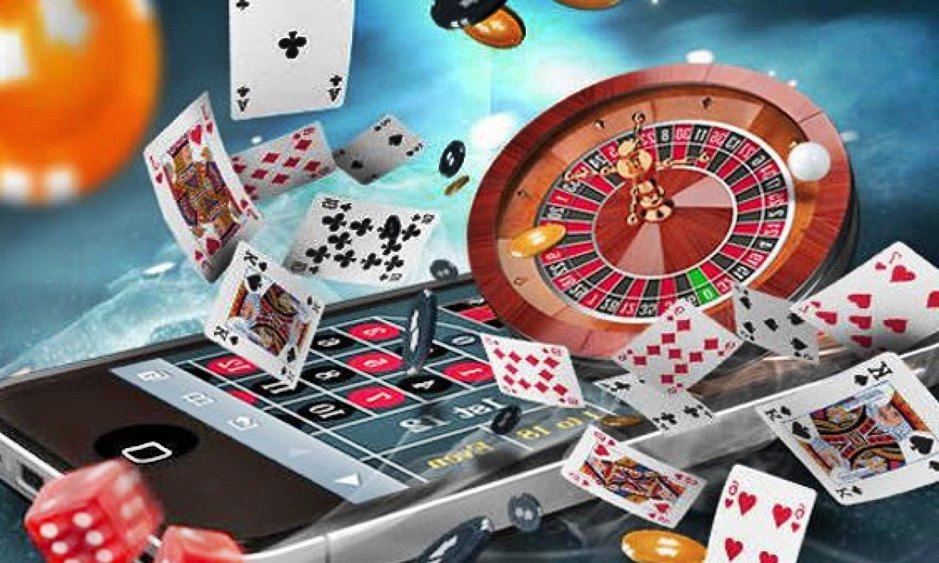
Gambling games have long been a captivating entertainment option, drawing countless of players from different cultures around the globe. From the lively casinos of Vegas to the bustling gambling halls of Macau, these games serve as a bridge that connects people across a variety of backgrounds. The allure of luck, skill, and gambling entices not only those seeking to win money but also those seeking a shared experience.
The influence of casino games extends well beyond the gaming floor. They often embody the cultural standards and principles of the societies in which they prosper. Games such as poker, pontoon, and the spinning wheel have integrated into the fabric of mainstream culture, influencing multiple fields from cinema to clothing. As we explore this intriguing intersection of chance and culture, we can comprehend better how casino games shape and are influenced by the world around us.
Chronological Progression of Casino Activities
The origins of gambling activities can be followed back to historical cultures, where betting in various forms was widely performed. In China, around 2300 BC, a form of luck game known as Keno was well-known, while in ancient Rome, soldiers would frequently gamble on the results of their matches. The notion of using randomness for fun and gain evolved over the years, leading to the formation of more formal games. By the final Middle Ages, gambling houses started to emerge in European nations, particularly in Italy, which brought forth early forms of famous activities still played today.
As betting gained popularity in European regions, the 17th and 18th centuries saw the appearance of gambling establishments as exclusive locations for gaming. The first official gambling house, the Ridotto, was set up in Venice in 1638, offering activities like Baccarat and the game Faro. This era marked a major shifting point, as gaming venues commenced to attract not just the wealthy but also the growing middle-tier society. The refinement of activities grew, leading to the creation of new guidelines and versions that enriched the gaming experience.
In the 19th century, the industrial revolution and shifts in societal conventions additionally changed the terrain of casino games. The arrival of the game of roulette and modern one-armed bandits drew a broader clientele, and casinos became seen as legitimate recreation. This time witnessed the international spread of gaming, as casinos expanded from the continent to the Western Hemisphere, culminating in the creation of the iconic Las Vegas Boulevard in the 1900s. The progress of casino activities has persisted into the present day, incorporating modern technology and digital sites, rendering them available to a worldwide market.
### Cultural Significance in Different Societies
Casino activities have profound social value within numerous societies across the world. For instance, in Las Vegas, the very fabric of the urban landscape is woven around gambling establishments, where gaming is not just a recreational activity but a key aspect of social engagement and community life. The bright lights and vibrant atmosphere attract countless individuals, showcasing how casino games can shape local financial landscapes and local cultures. This surrounding transforms the notion of relaxation into an immersive experience that influences fashion, sound, and even film.
Conversely, some communities approach gambling with an air of caution, viewing it through the lens of ethical considerations and customs. For example, in numerous Eastern communities, games like Mahjong and Pai Gow are steeped in history and have significant social relevance. These games are often played during gatherings and celebrations, fostering community bonds and strengthening family ties. okebet The act of participating in these games goes past mere entertainment, reflecting values such as deference to seniors and the value of communal fun.
Simultaneously, in Western countries such as Monte Carlo and the Italian Peninsula, gambling activities serve as symbols of opulence and sophistication. The stylish atmosphere of these establishments attracts both travelers and locals, maintaining a sense of distinction and elitism. The art of poker and the tactical components of games like the game of baccarat are esteemed, shaping community relationships and creating an attraction that fascinates a diverse audience. This underscores how games of chance can concurrently echo and shape cultural perspectives towards danger, gain, and community interaction.
Financial Influence and Tourism
Casino games play a crucial role in the financial context of many regions, particularly those that depend significantly on visitor traffic. The revenue produced from gambling establishments fuels local financial systems, creating jobs not only within the casinos but also but also in related sectors such as hotel management, dining, and recreation. This influx of tourists, drawn by the allure of games and the overall casino experience, stimulates spending across multiple local enterprises, contributing to the economic health of the region.
The presence of casinos often leads to the development of infrastructure, including lodging, transportation systems, and recreational facilities. These improvements are essential in improving the overall visitor satisfaction, making locations more attractive to visitors. Additionally, many casinos invest in local communities through support of events and charitable initiatives, further embedding themselves into the community structure of the locality. Such contribution not only supports economic growth but also fosters a positive image of the casino industry.
In addition, the global popularity of casino games drives tourism competition, with regions vying to attract gamblers from around the world. Iconic destinations like Las Vegas and Macau have become synonymous with gambling culture, drawing millions annually. This competitive edge encourages creativity and diversification within the gaming industry, influencing trends in leisure and accommodation that extend beyond their limits. The consequences of this tourism extend wide, impacting local economies and cultural exchanges on a global scale.